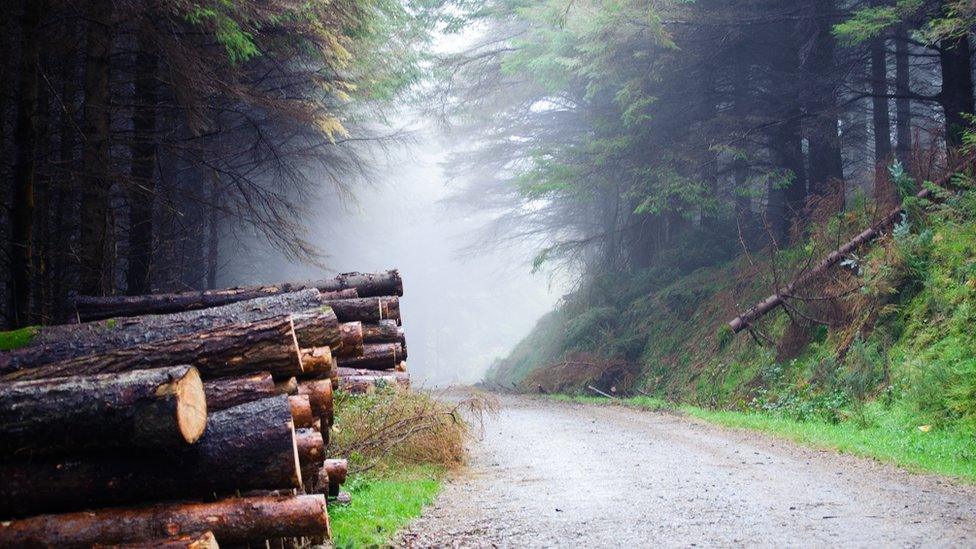Bid to halt abolition of forestry body
- Published
- comments

A last ditch attempt is being made to convince MSPs not to abolish the Forestry Commission in Scotland on the eve of its centenary.
A Scottish government bill to make forestry a government department will go through its final stages at Holyrood on Thursday.
But many in the sector say it is a bad move which will see the loss of decades of forestry experience.
They have written to MSPs this week urging them to vote against the bill.
George Anderson from the Woodland Trust feels that losing Forestry Commission Scotland would be a mistake.
He said: "We feel that the Forestry Commission in Scotland has been an amazing brand which is so well known. Even outwith the circles of land management, everyone knows who the Forestry Commission is and it's really foolish to turn your back on that kind of brand recognition.
"It's built up a huge amount of expertise and is now doing a tremendous job in what is a billion pound industry for the country and we just feel it will be really careless to lose that."

The bill was introduced following the devolution of powers over forestry.
Although Forestry Commission Scotland had its own committee, it operated under the UK body even though much of its funding came through the Scottish government.
But the Forestry Commission operated as a non-ministerial government department.
Iain Laidlaw, a local Public and Commercial Services (PCS) union rep, said: "We are very worried that pulled too close into the Scottish government we are just going to be dragged from pillar to post depending on the latest whim of the latest minister.
"Ministers last maybe a couple of years if they are lucky. Forestry is a much longer-term business than that."
'Heavy handed'
Indeed, it can take 40 years for a sapling to develop into a mature tree which can be harvested and sold for profit.
The bill progressed despite heavy criticism from Scottish Parliament's rural affairs committee.
Changes have been made such as a commitment to appoint a chief forestry officer.
That promise was enough to convince some parts of the sector, like the Confederation of Forest Industries (Confor), to support the bill.
But Willie McGhee from the Forest Policy Group believes the government has been heavy handed in its approach.
He said: "I think the civil servants have handed it very badly indeed. It's created quite a lot of bad feeling.
"There are those in civic society that feel that they have been brow beaten and it almost looks to us from the outside as if parts of Forestry Commission have been bullied into accepting this arrangement."
Economic value
Fergus Ewing, the cabinet secretary for the rural economy, replied: "I have met with all the people that wish to meet with me and we have had discussions. There has been none of that (bullying) and that would be completely inappropriate."
A handful of groups from inside and outside the industry have written jointly to MSPs urging them to vote against the bill.
Among them is Helen Todd from Ramblers Scotland who said forestry is about walking, mountain biking and horse riding as much as it is about growing trees.
She added: "It's actually about 18% of the economic value of forestry in Scotland which is connected to outdoor recreation.
"If the Forestry Commission turns into a department of the Scottish government, we're really concerned that a lot of the expertise in managing that outdoor recreation will be lost over time."
If the bill is passed, Forestry Commission will be scrapped in Scotland in 2019 which is its centenary year.
The department which will replace it will be named Scottish Forestry.
- Published9 November 2016
